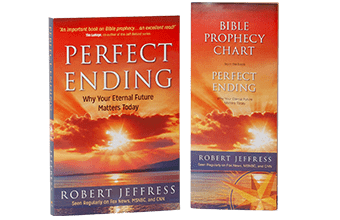They received the word with great eagerness, examining the Scriptures daily to see whether these things were so.
–Acts 17:11
Jesus said most people are on the broad road that leads directly to hell. How do people get onto the road that leads to eternal destruction? Jesus answered that question in Matthew 7:15: “Beware of the false prophets, who come to you in sheep’s clothing, but inwardly are ravenous wolves.” A false prophet may appear to be intellectual, inclusive, and kind, but he lures people onto the wrong road. So how do you know if somebody is a true prophet or a false prophet?
Look at verses 16-17: “You will know them by their fruits. Grapes are not gathered from thorn bushes nor figs from thistles, are they? So every good tree bears good fruit, but the bad tree bears bad fruit.” You do not have to be a horticulturalist to know you do not get grapes from a thornbush or figs from a thistle. The problem is sometimes you cannot tell a good tree and a bad tree apart from a distance. For example, in Israel there was a plant called the buckthorn bush with berries that resembled grapes. But you would never want to put those berries on a PB&J!
Jesus said the same thing about the kind of fruit a false prophet bears. Bad trees may look good from a distance, but they always bear bad fruit. So when you are trying to evaluate whether somebody is a good prophet or a false prophet, look at two specific fruits in his life.
First of all, does his teaching align with the truth of God’s Word? In Acts 17, Paul went to Berea to preach, and notice what the Bereans did: “They received the word with great eagerness, examining the Scriptures daily to see whether these things were so” (v. 11). I do not care how many degrees a teacher has or how many books he has sold–you need to check out what he says against the Word of God. That is the test of whether a prophet is speaking truth or heresy.
Second, is his life characterized by devotion to God or rebellion against God? Peter made that distinction in 2 Peter 2:1-3: “There will also be false teachers among you, who will secretly introduce destructive heresies, even denying the Master who bought them. . . . Many will follow their sensuality, and because of them the way of truth will be maligned; and in their greed they will exploit you with false words.” Is a prophet’s life littered with divorces, immorality, greed, corruption, and outbursts of anger? Or is his life marked by a lifelong devotion to God? Now, I am not claiming that a good teacher has to be perfect. But if he makes a mistake, he admits it and turns away from that sin. Sin is the exception, not the rule, in his life. That is how you will know a true prophet from a false one.
***
Today’s devotion is excerpted from “Straight Talk About Your Eternal Destiny” by Dr. Robert Jeffress, 2022.
Scripture quotations taken from the (NASB®) New American Standard Bible®, Copyright © 1960, 1971, 1977, 1995 by The Lockman Foundation. Used by permission. All rights reserved. www.lockman.org; (NLT) Holy Bible, New Living Translation, copyright © 1996, 2004, 2015 by Tyndale House Foundation. Used by permission of Tyndale House Publishers, Inc., Carol Stream, Illinois 60188. All rights reserved.
